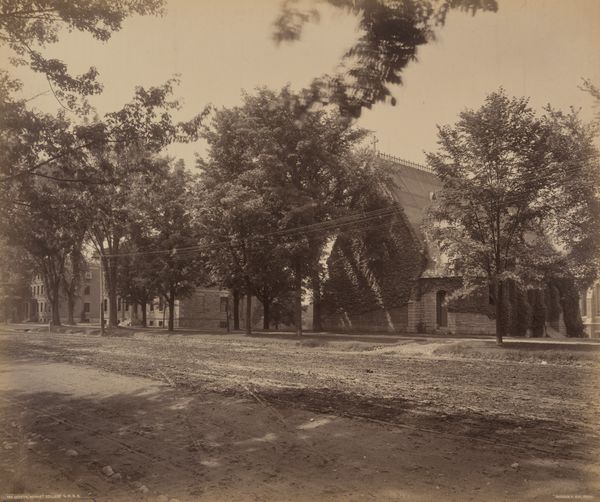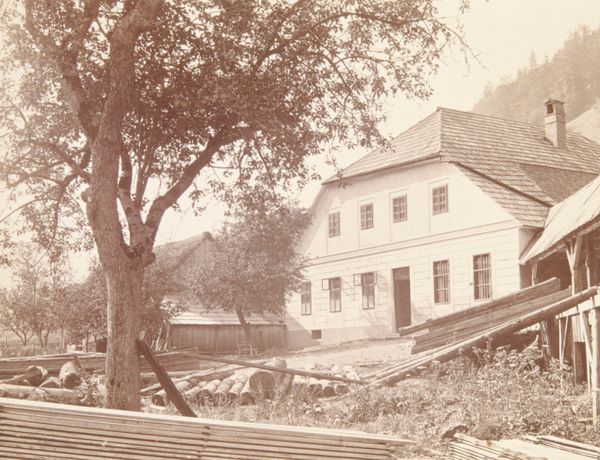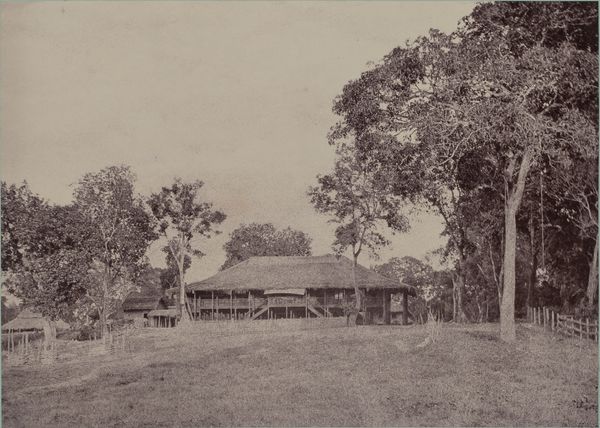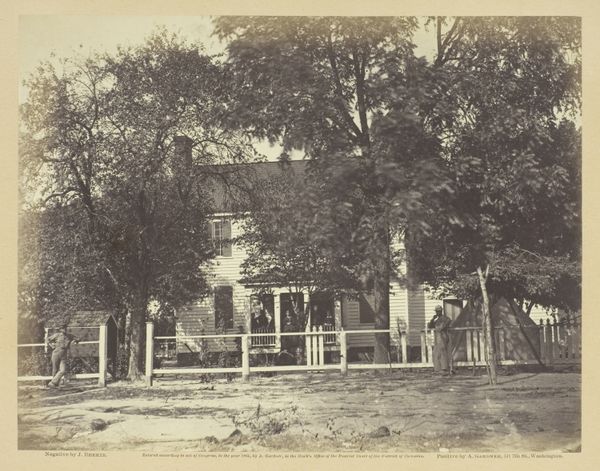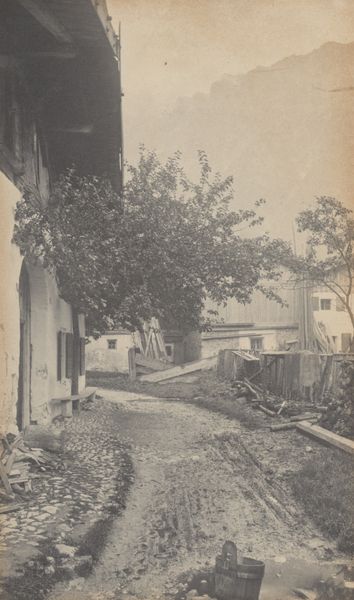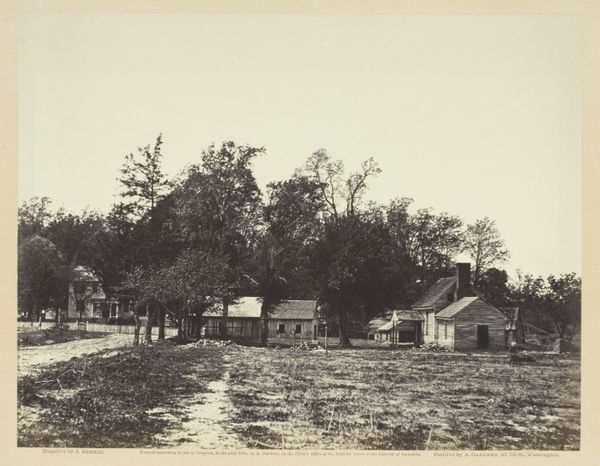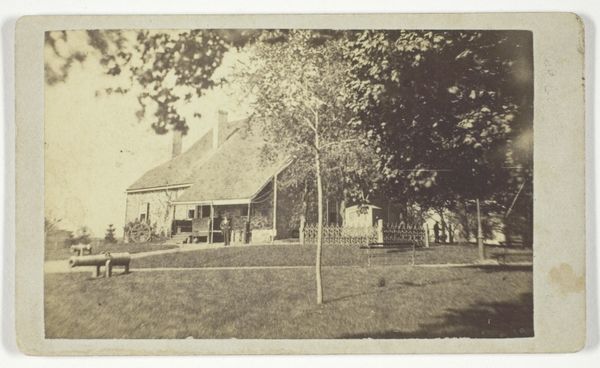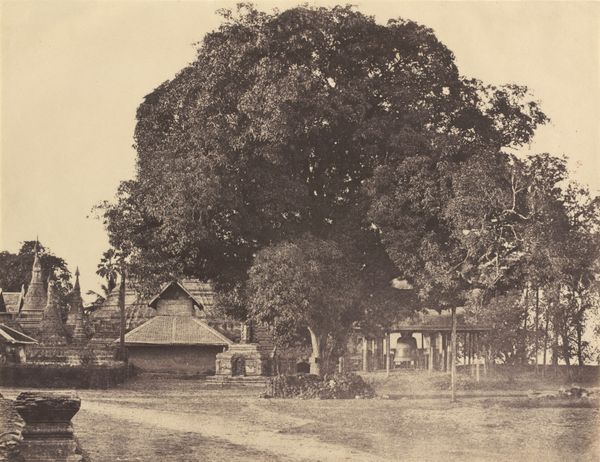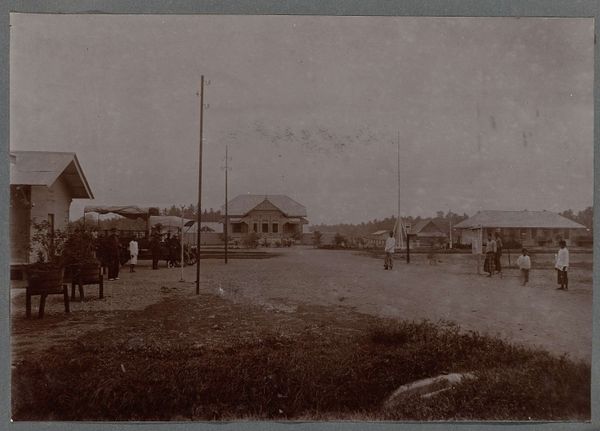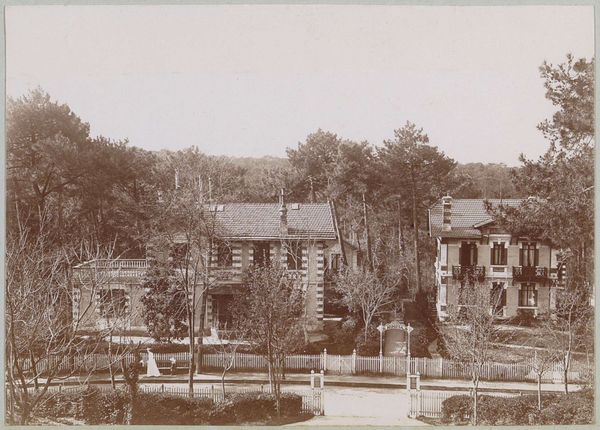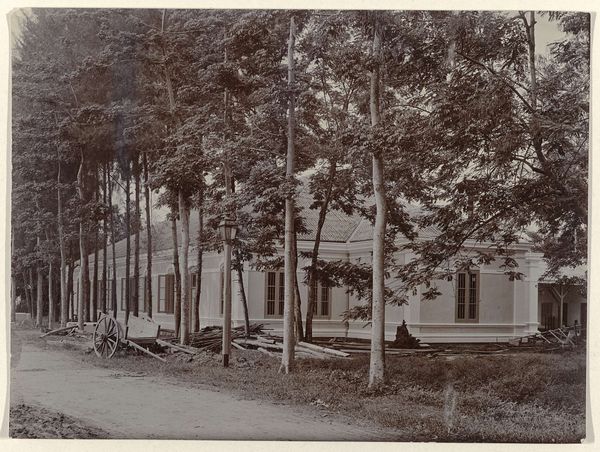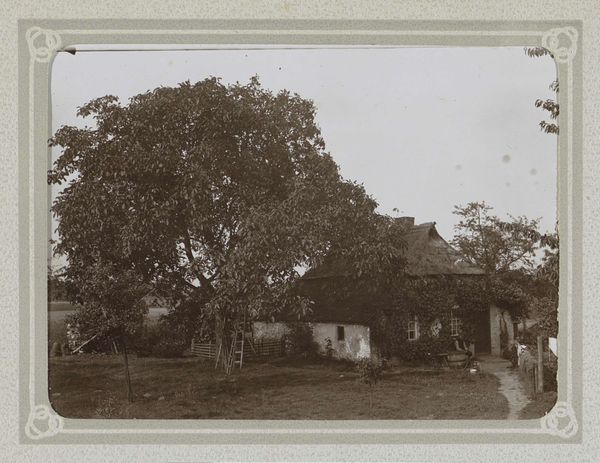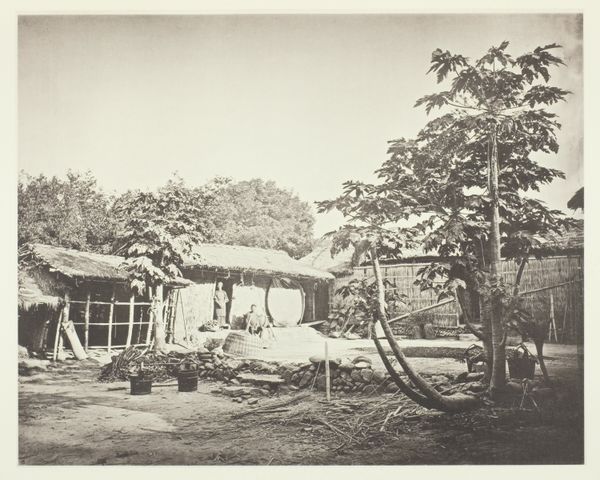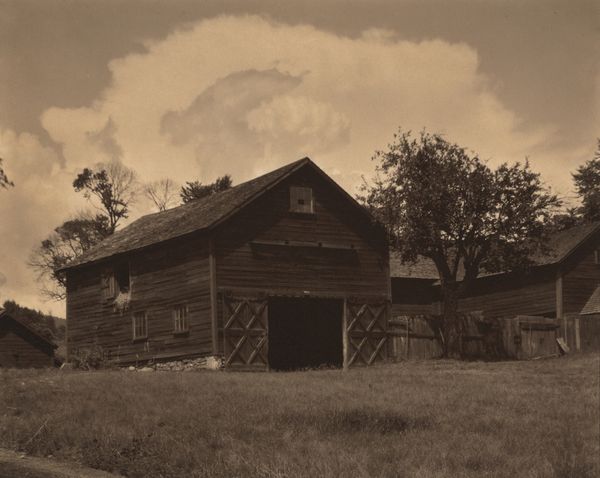
photography, gelatin-silver-print
#
scenic
#
countryside
#
asian-art
#
landscape
#
historic architecture
#
photography
#
outdoor scenery
#
gelatin-silver-print
#
19th century
Dimensions: image: 26.2 × 34.2 cm (10 5/16 × 13 7/16 in.) mount: 45.7 × 58.5 cm (18 × 23 1/16 in.)
Copyright: National Gallery of Art: CC0 1.0
Editor: Here we have Linnaeus Tripe's "Tsagain Myo: View near the Irrawadi River," a gelatin-silver print from 1855. I'm struck by the composition - how the building on stilts is nestled between these large trees. What do you see in this piece? Curator: Formally, the photograph presents a study in tonal contrasts. Note how the varying shades of grey delineate spatial depth. The texture of the foliage, the subtle reflections on the water – these are not merely representational, but crucial elements in the photographic composition itself. Editor: So you’re drawn more to the photographic qualities than the subject matter? Curator: Precisely. Observe the light. Tripe’s placement of the building draws the viewer's eye, acting almost as a vanishing point framed by the organic shapes. It's this interplay between constructed form and natural elements that constitutes the work's artistic value. Editor: The light definitely enhances the textures; the reflections especially are quite intriguing. I can see how the tones create depth. Curator: Indeed. And consider the gelatin-silver print itself. The materiality lends a certain atmospheric quality, wouldn't you agree? The choice of process and the photographer’s understanding of the medium become paramount in understanding the final aesthetic result. Editor: I didn’t initially consider the materiality but, seeing the interplay of textures, I better grasp its effect on the overall composition. Curator: Studying such aspects helps unveil the work's artistic structure. Editor: It certainly changes my perspective on how to look at photographs as art. Thanks for your help!
Comments
No comments
Be the first to comment and join the conversation on the ultimate creative platform.
